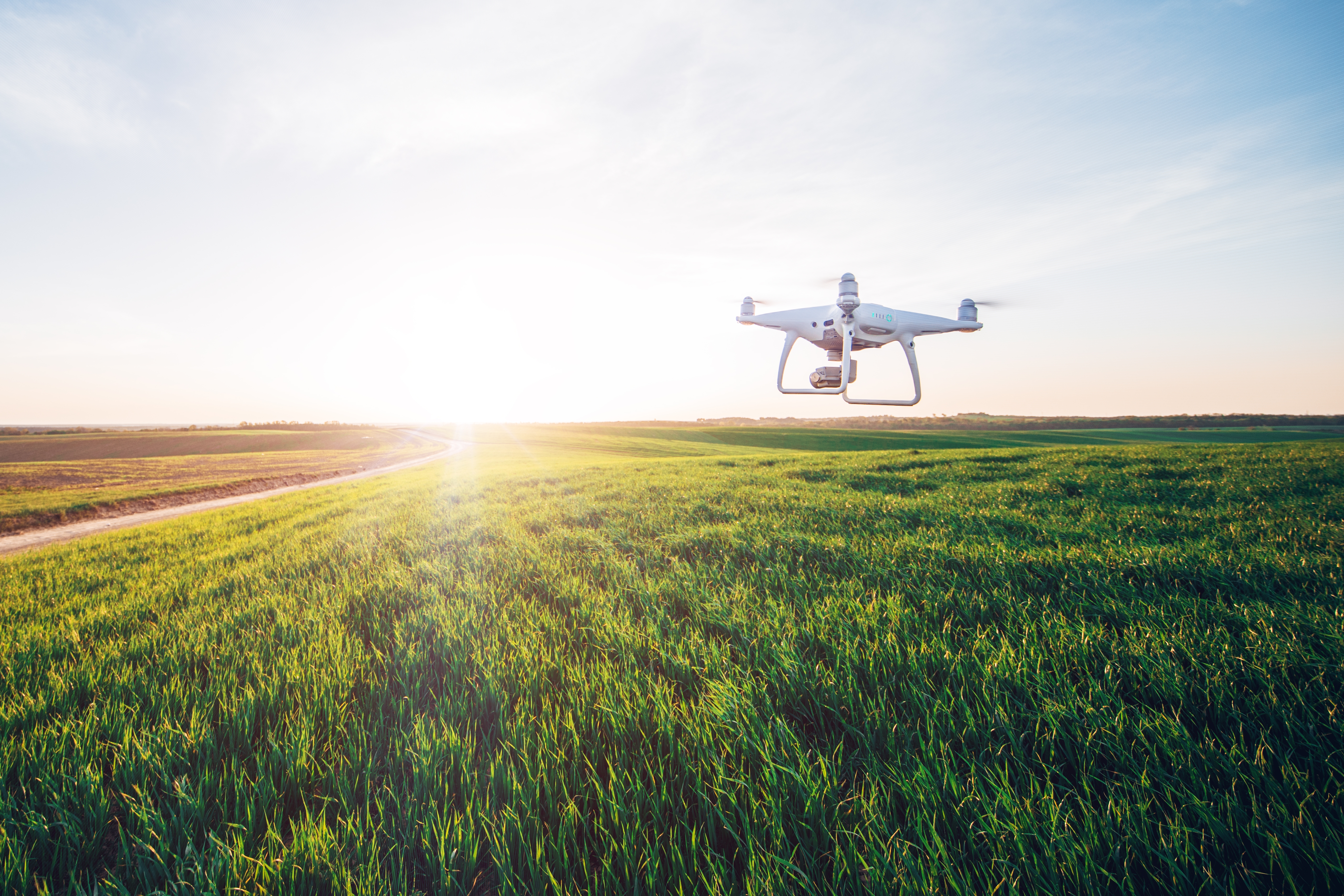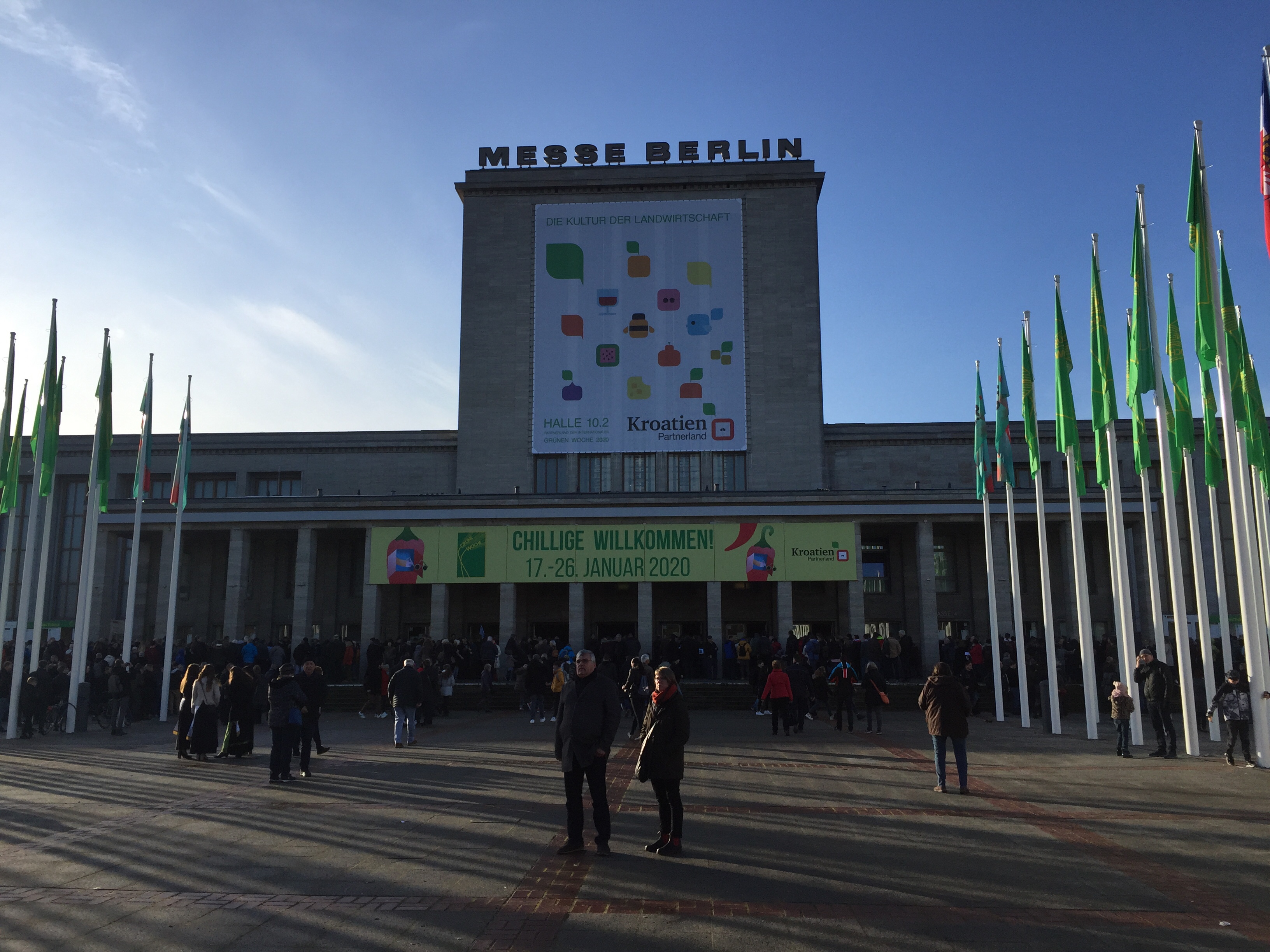Professionalizing Knowledge Transfer Processes Unit
Visit of the International Green Week: Sustainable into the new decade
Saxony’s exhibitors at the Green Week 2020 presented themselves in a regional and environmentally conscious manner to the more than 400,000 visitors of the agricultural fair in Berlin - while at the same time the tractors of Germany’s protesting farmers rolled through the streets. The EXPRESS team took the opportunity to meet and talk to a wide range of players.
Two very different worlds were colliding in Berlin this weekend at the opening of the International Green Week. While Members of the protest movement "Land schafft Verbindung" (EN: Land creates connections) rolled with hundreds of tractors to the Brandenburg Gate on Friday to demonstrate against the federal government's agricultural package, the Parliamentary Evening on securing the world's food supply, organized by Syngenta International AG, was held just a few meters away. It had been several hours since Federal Minister Julia Klöckner had officially opened the International Green Week - and another few hours before thousands of people would appeared in front of the Brandenburg Gate again on Saturday; this time, however, to campaign for a more ecological orientation of agriculture.
The demand for more environmental protection versus the justified economic concerns of agricultural enterprises. Caught between the two stools: politics - and a capital-intensive agricultural industry seeking its place in a society increasingly critical of the use of chemical pesticides.
Sustainable and regional - but how?
With this question in mind, the EXPRESS team used the visit to the International Green Week to talk to a wide range of partners. During the Parliamentary Evening, contacts were made with such diverse players as BUND (Friends of the Earth Germany), various seed producers, GIZ (German Society for International Cooperation) and others. However, the fact that the sustainable design of agriculture was the overarching theme of all the discussions could not hide the fact that the concrete approaches to solving the problems differed considerably from one another.
An important topic, which is also part of the EXPRESS experimental field, is the regional production of agricultural goods. These could shorten supply chains and strengthen small-scale production structures. "The issue of regionality is becoming increasingly important for producers and consumers. Strengthening the demand for regional products and value chains is a major focus of my work," said Saxony's Minister of State for Energy, Climate Protection, Environment and Agriculture, Wolfram Günther, after talking to Saxony`s exhibitors at the International Green Week.
Regionality in EXPRESS: "Food tracing via Blockchain
The EXPRESS team was able to witness the diversity of Saxony's agriculture for themselves. In an exchange with agricultural enterprises of the fruit and wine sectors, the concerns and needs of the producers were discussed. After all, particularly small and medium-sized enterprises could benefit significantly from a more regional orientation of production - but are confronted with financial and technical hurdles in the process.
The EXPRESS experimental field provides an important contribution to knowledge and technology transfer. The sub-project "Food tracing via Blockchain", for example, focuses on the question of how transport routes, and thus regionality, can be understood better. The open day of the experimental field in March offers good opportunities for a dialogue on such approaches and their potential. Interested farmers from the fields of crop production and special crops as well as parties from science and politics are cordially invited to attend - early registration is requested.
Background
The EXPRESS project is funded by the Federal Ministry of Food and Agriculture (BMEL) with 2.7 million euros from the funds of the "Future Digital Policy for Agriculture" programme following a resolution of the German Bundestag. EXPRESS is carried out by a research association coordinated by the Institute for Information Systems at the University of Leipzig and involving the Fraunhofer Center for International Management and Knowledge Economy IMW, the Helmholtz Centre for Environmental Research - UFZ and the IMMS Institute for Microelectronic and Mechatronic Systems gGmbH.



